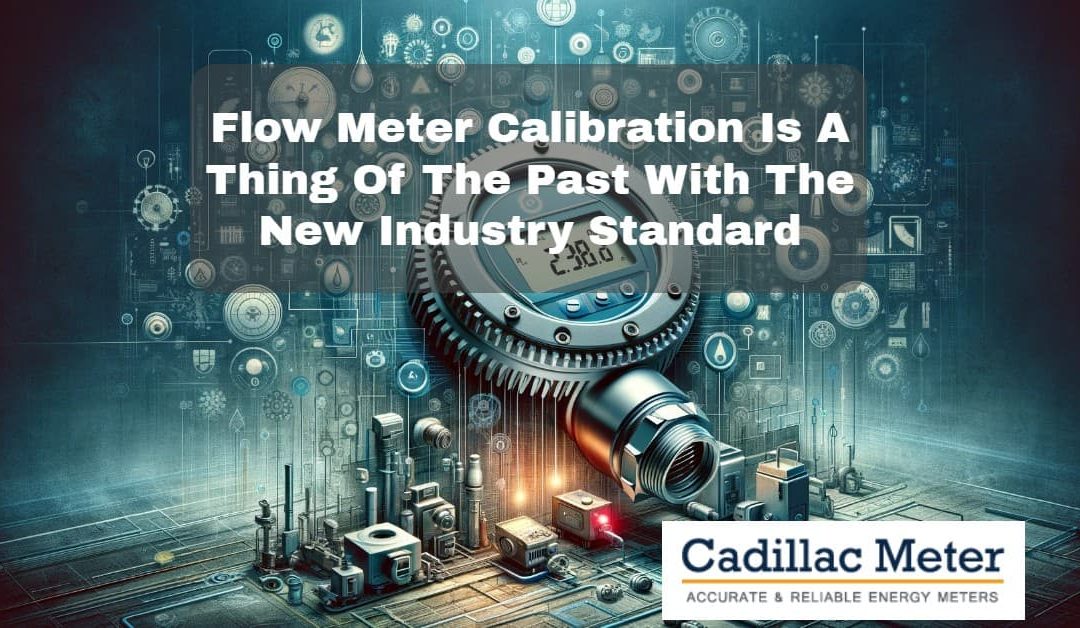Calibrating a flow meter can be a hassle and a headache, but there is a new industry standard in measuring liquid flow that will change your tune.
Every so often flow meters need to be calibrated, meaning their performance must be compared to a standard, and the meter’s deviation from that standard must be determined and corrected.
This process is necessary for most meter technologies (mainly mechanical ones) because there are a wide variety of errors that can contribute to inaccuracy, which often go undetected. For example. Vortex shedder bars erode, pitot tubes become clogged, and turbine rotors can become worn. Factors like improper installation, buildup of deposits and modifications in the piping coordination can also have adverse effects on a flow meter’s accuracy over time.
How Are Flow Meters Calibrated?
A flow meter’s deviation from the standard can be measured in two ways: with a master meter or by weighing mass flow.
Master meters are calibrated to peak accuracy by specified, accredited laboratories. These labs are ones that are certified by the National Institute of Standards and Technology (NIST). Subsequently, this means that flow meters which are calibrated to master meter accuracy in such a lab will be backed by NIST certification and traceability.
The second method of flow meter calibration involves weighing the amount of fluid that flows through the meter during the calibration procedure. This is typically done using a supremely accurate weigh scale which must also be approved by NIST. This method is often regarded as the most accurate way to measure the volume of flow.
Flow meters can also be calibrated in the field, also known as “wet” calibration, however this method is frequently scrutinized because it lacks the involvement of national standards. Additionally, field calibrations are usually not an option in most applications because challenging an installed flow meter with a given volume of water is just not practical.
Calibration Is Not Absolute
Any deviation from the laboratory conditions under which the device was calibrated can result in inaccuracies when the meter is used in its intended application. For example, the application of a flow meter that was calibrated on clean water to measuring wastewater with a high concentration of suspended solids could greatly affect accuracy.
Unexpected turbulence in a piping system introduced upstream of a meter can result in performance that differs greatly from its calibration performance. The length of the pipe upstream and downstream of a device, the pipe material and even the roughness of the interior surface of the pipe can affect accuracy. The incident angle that a device is mounted at can affect accuracy and function as well. In fact, a great number of systematic, random and spurious errors can contribute to inaccuracies in real world conditions. Worse, these errors are generally not readily observable or measurable in closed pipe systems and therefore not easily detected.
The Answer
Flow meters without moving parts, like ultrasonic and magnetic flow meters, remove the variables surrounding mechanical degradation. Because these flow meters lack fluid-intrusive pieces, the technology used to sense and measure flow won’t be affected by erosion or deposits, allowing the device to maintain its accuracy and reliability. Magnetic flow meters are also less susceptible to inaccuracies caused by piping configurations. For example, the Cadillac® CMAG pumped and gravity condensate flow meter is capable of providing accurate measurements (at +/- 0.25% of rate) in just about any location it can be installed in, even near elbows and other areas without significant straight run. This advanced flow meter technology also offers a 300:1 turndown. Combined with its other advantages, this magnetic flow meter simply makes all mechanical flow meters and the need for calibration obsolete.
For more information about magnetic flow meters, call Cadillac Meter today at (888)556-3913.



